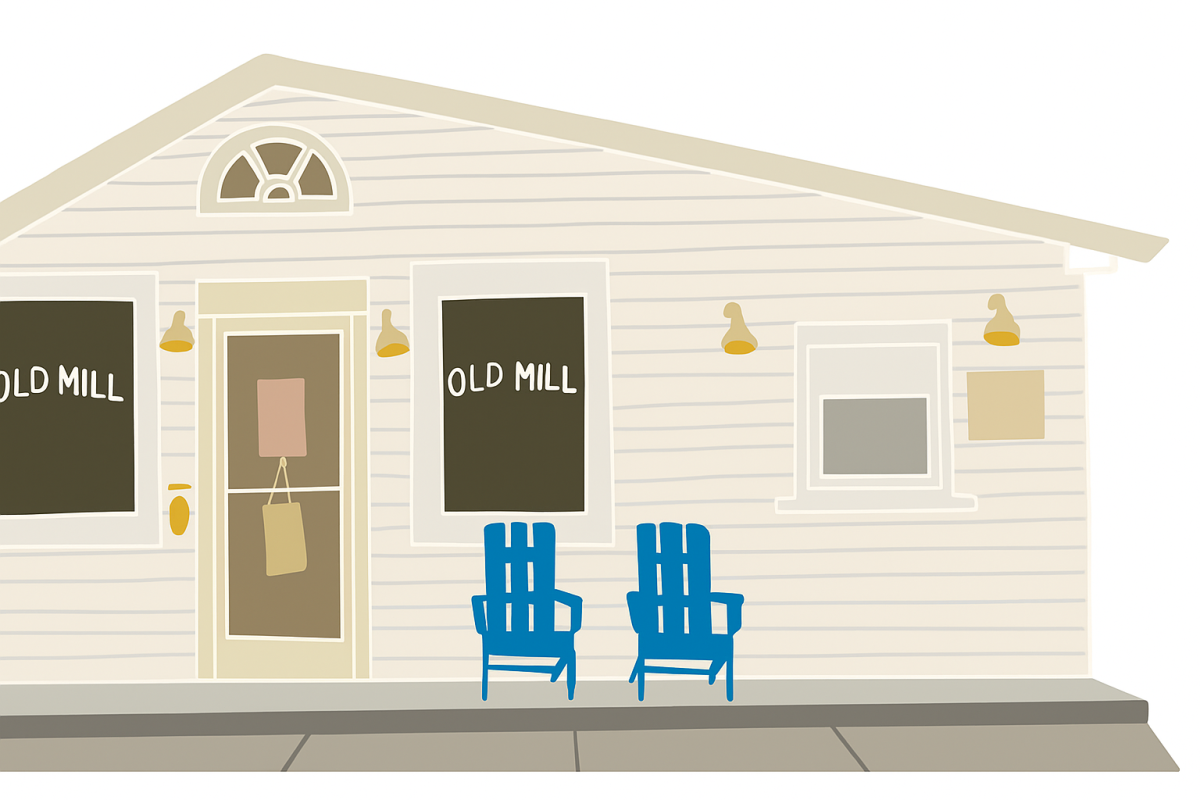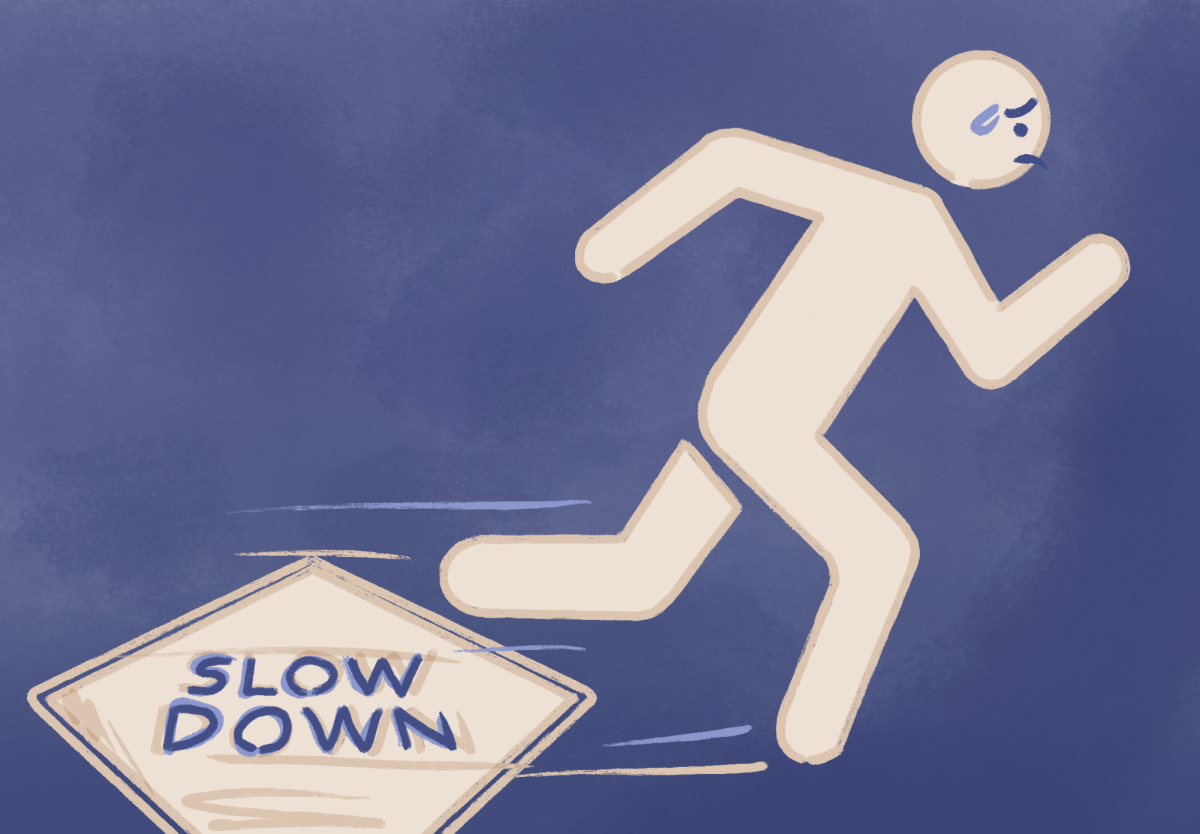Overworked from overtime
Teachers work second jobs to supplement income, stay in career of choice
Evie Barnard
Richter and Uehara are among the many teachers working second jobs in order to make ends meet in a city where the cost of living is always increasing and in a career that in notorious for having low pay.
December 8, 2022
Jeans. Check.
Tennis shoes. Check.
Central Market polo shirt. Check.
These items are just a few of the things running through history teacher Jennifer Richter’s mind as she leaves for school on a day when, after school, she is working at her second job as a cashier.
The morning may seem hectic, but the evening is worse.
The school bell rings at 4:35 p.m. Richter and her son, Ben, a junior, book it to her car. They try to beat the traffic getting out of the school. She drops off Ben, at her house or his dad’s house. Then, she races to the South Austin Central Market location for her shift that starts at 5:30 p.m.
She works four to five hours until closing. Goes home. Takes a shower. And passes out.
“There’s some weeks I do better than others,” Richter said. “But I really want to do this. The thought of leaving the classroom makes me really, really sad. I realized during the pandemic that not having the kids in the room with me, was really difficult. I still wanted to do it. So this must be really what my jam is.”

Richter took on her second job last May and worked it through the summer. She’s a single mom working in a city where the cost of living is always increasing and in a career that in notorious for having low pay. So having a little extra money is always helpful.
If something happened to her car, it’s not an economic catastrophe.
She gets a discount on groceries from her job.
She can work during holidays and breaks when she’s not teaching.
“That will pay for Christmas,” Richter said.
But working both jobs has been more difficult this year. She’s been teacher for 16 year but this is her first year at McCallum. She teaches U.S history — regular and AP—a subject she hasn’t taught in six years.
“Starting from scratch has been harder than I thought it would be. That’s taken up more time. I have to make sure that on the days that I don’t work [at Central Market] that I do make sure I get some rest and that I take care of my other business like grocery shopping and cleaning the house and making sure the cats go to the vet and your kid sees the doctor. I have to be a lot more intentional about how to do everything.”
With Richter’s schedule now, she works her five days a week at school and two days a week at Central Market. Usually she works one weekday and one weekend day, sometimes two.
“That’s a lot of time because it’s usually an eight-hour shift,” Richter said. “So that gives me very little time on the weekend to get my stuff for school done or to have any kind of personal life or see my child.”
Still, she works the extra job. She doesn’t want to be driven out of the career she loves or the city she was born and raised in.
“I can see the day coming where this is all too much for me,” Richter said, “which is kind of sad to think about. I’m a product of AISD, I went to Anderson High School and a lot of my best friends went to McCallum. My mom opened to the school in 1953, as a seventh-grader, and she went to school here all the way through.”
Richter isn’t alone. Many other teachers have a second income, a side-hustle of sorts, like tutoring to make a little extra money.

In addition to her work at school, dance teacher Natalie Uehara is also the Musical Theatre Director at Dance Discovery and Avery Ranch Dance. She teaches classes Mondays and Wednesdays after school and also directs the musical they put on every year.
“I get to work with a different age group,” Uehara said. “The oldest that I teach is 14, and I’ve taught there at the studio all the way down to age 5. It’s fun for me to because I’ve never been an actual director of a show before. It’s different from just choreographing, so I get to kind of be a little bit of creative in a way that I’ve never done before.”
Uehara took on the job two years ago during the pandemic to counterbalance the money she would usually receive as a stipend for choreographing the school musicals.
“I needed to find another job in order to sustain my life and my kids’ lives,” Uehara said. “I took the job on during that time, and it was kind of going to be only a temporary thing. But this is my third year doing it. I really enjoy it, and it helps financially.”
The key to Uehara’s schedule is balance. Still, working a second job in addition to her after-school commitments makes her very busy.
“When we get a little closer to the show, which is usually in May. We do have a few extra rehearsals on the weekends. But my evenings when we’re in production for either a dance concert or a musical here and at the studio, it’s like I am working morning, noon and night.”
So why do Uehara and Richter and the many others work the second job? Because even when it’s hard, they love teaching. They can’t imagine doing anything else.
“It’s not like when I went into teaching, I thought I was going to be a millionaire,” Richter said. “This is what I want to do. It makes me happy every day to see the kids. I mean, I know most of them are not super choked up about learning about roaring ’20s and the stock market. But the ones who are, it makes me really happy to have that happen. Or when someone leaves a little note on my desk that says, ‘Thanks for making me like history’. Even if they didn’t sign it.”
This story was originally published on The Shield Online on December 4, 2022.










![Senior Dhiya Prasanna examines a bottle of Tylenol. Prasanna has observed data in science labs and in real life. “[I] advise the public not to just look or search for information that supports your argument, but search for information that doesn't support it,” Prasanna said.](https://bestofsno.com/wp-content/uploads/2025/10/DSC_0073-2-1200x800.jpg)


























